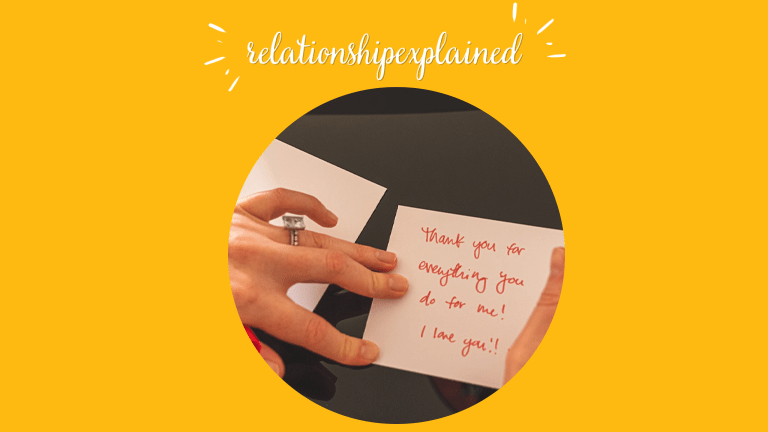When A Guy Calls You "Ma'am"
A guy can call you "ma'am" for various reasons, such as politeness, chivalry, sarcasm, unfamiliarity, admiration, criticism, or cultural norms. Depending on the situation, you can respond with gratitude, assertiveness, humor, education, or by setting boundaries while considering up-to-date social dynamics and avoiding any unintended or unwanted social messages.
When a guy calls you "ma'am," it may seem like a simple form of address, but beneath the surface, there can be hidden meanings.
This seemingly innocuous term can carry various connotations depending on the context and the person's intention. From politeness and admiration to sarcasm and cultural norms, the motivations behind its usage are multifaceted.
By delving into the intricacies of this common interaction, we can decipher the various meanings behind the use of "ma'am." It can help provide a deeper understanding of the underlying intentions, emotions, and cultural influences involved.
Join us as we explore the diverse reasons why a guy may choose to call you "ma'am" and uncover the intricate nuances behind this common form of address.
Reasons Why A Guy Might Call You Ma'am
1. Politeness And Respect
When a guy calls you "ma'am," it signifies his intention to display good manners and show respect towards you. It is a way for him to adhere to social norms and demonstrate courtesy in formal or professional settings. He aims to create a polite and respectful atmosphere using this formal address.
Using the word “ma’am” is perhaps the safest method of avoiding an unwanted social message when addressing a woman past a certain age. Other variations of this catch-all word can include madame, the original English term from which it is derived. Madame, in turn, comes from the French word "ma dame," which was used when addressing an elegant French lady, and the pronunciation change happened over a long time.
2. Chivalry And Admiration
Chivalry and admiration can play significant roles when a guy calls you "ma'am." Using this term, a guy aims to demonstrate respect, admiration, and honor toward you. This gesture is often rooted in traditional notions of chivalry, where men exhibit courteous behavior towards women.
When a guy calls you "ma'am" out of admiration, it suggests he holds you in high regard. He may perceive you as a person of great character, accomplishments, and personal qualities that he deeply appreciates. This address reflects his recognition and appreciation for your virtues, such as intelligence, kindness, wisdom, or leadership abilities, of which you may be completely unaware.
3. Sarcasm Or Teasing
Sarcasm and teasing, while often employed in a lighthearted manner, can create such a complicated relationship when it comes to the use of "ma'am." In these instances, the word may be used in an ironic manner or mockingly, adding an extra layer of complexity to the interaction.
The nature of sarcasm and teasing relies on the element of irony or jest, which can be subjective and dependent on the individuals involved. While some may find it amusing and engaging, others may perceive it as hurtful or disrespectful. This dynamic can make navigating the use of "ma'am" in sarcasm or teasing a delicate balancing act.
4. Cultural Or Regional Norms
Navigating different regional and cultural norms can often lead to a complicated relationship with others, especially regarding the meanings attached to different words. Different cultures and regions may have distinct customs and traditions that dictate how individuals show respect and politeness toward women. And certain cultural or regional norms significantly influence the use of "ma'am" when addressing someone.
In some cultures, using honorifics like "ma'am" is deeply ingrained in social interactions. It is generally considered a way to demonstrate respect, formality, and adherence to traditional values. For example, in certain Asian cultures, appropriate honorifics are essential to convey respect for age, authority, or social hierarchy.
Thus, women hear this polite term more commonly when addressed by a well-meaning stranger.
5. Language Barrier
Remember language barriers can often lead to the use of "ma'am" as a default term of respect or politeness. When a guy is not fluent enough to use the language continuously, he may resort to using "ma'am" to show general respect without relying on specific names or titles.
In such instances, a guy calling you "ma'am" serves as a neutral and inclusive address that can be understood across languages, especially since it has few alternatives. It is a way to demonstrate politeness and establish a basic level of communication and respect, especially in cross-cultural or multilingual interactions.
6. Age Or Hierarchical Difference
Addressing someone as "ma'am" due to age or hierarchical differences reflects a recognition of seniority, respect, or an acknowledgment of the person's higher position. This usage of "ma'am" emphasizes the importance of age or hierarchy in the interaction and is often driven by cultural or social norms.
When a young person refers to you as "ma'am" because of the age difference, it signifies his understanding that you are older or more experienced. It demonstrates his intention to show deference and respect to your accumulated wisdom, knowledge, or life experience. This form of address is a way for him to acknowledge and honor the maturity and insight you may possess.
7. Professional Or Customer Service Context
The use of "ma'am" in a professional or customer service context, particularly within the food and beverage industry, is commonly observed as a part of expected conduct and etiquette. In these settings, addressing customers with formal titles like "ma'am" is a way to convey professionalism, attentiveness, and respect for their patronage.
Interactions with customers are integral to their overall experience when it comes to such industries. And using "ma'am" is a conventional approach to providing excellent service. It demonstrates that the staff members are trained to uphold a high level of professionalism and to create a pleasant atmosphere for guests.
8. Formality And Tradition
The use of "ma'am" in certain contexts can be attributed to formality and adherence to tradition. In formal settings or situations where traditional values are emphasized, calling someone "ma'am" is customary to address women with respect.
Tradition plays a significant role in the use of "ma'am" as well. Cultural and societal traditions often dictate specific terms of address that carry deeper meanings historically and symbolize respect. "Ma'am" is one such term that has stood the test of time, rooted in historical customs that prioritize showing deference to women.
The word meanings associated with "ma'am" highlight the formality and tradition behind its usage. It is derived from the contraction of the term "madam," which originally referred to a woman of high social status or authority. Over time, "ma'am" has come to represent a formal and polite way to address women, with respect linked inherently with this single word.
9. Sign Of Maturity
Addressing someone as "ma'am" can be seen as a sign of maturity on the part of the person using the term. It reflects their recognition and appreciation of your maturity, life experience, or personal growth. However, this does not mean it is related to marital status and can be used for an unmarried or married woman.
When a guy refers to you as "ma'am" to indicate maturity, it suggests that they perceive things differently compared to the younger generation’s perception. They may perceive you as someone with wisdom, understanding, or emotional intelligence beyond what is typically associated with younger individuals.
10. Gender-neutral Term
To avoid assumptions or mistakes regarding your gender, a guy may use "ma'am" as just one neutral label. It is respectful to address you in that manner until he obtains more information or clarification about your preferred pronouns or identity. By using "ma'am," he aims to show consideration and respect while navigating potential uncertainties.
Ma'am is often thought to have originated from the French word mademoiselle, which refers to a young lady or an unmarried woman. The French government banned it from official usage in 2012, marking an identity shift, with feminists noting that it would lead to a more inclusive approach.
Dealing With Situations When A Guy Calls You Ma'am
1. Clarify Your Preference
Engage in a polite conversation and express your discomfort or preference regarding being called "ma'am." Explain how much women appreciate being addressed in a way that acknowledges their individuality rather than using a term that may generalize based on age or assume a marital status. Highlight the importance of respectful and inclusive language that values women's diverse identities and preferences.
2. Provide Guidance
Educate others about respectful language and the importance of using terms that reflect respect without relying on any antiquated Victorian term or age-graded labels. Help them understand that respect should be based on individual attributes rather than privileged social attributes. Engage in open conversations to foster understanding and awareness of diverse identities and preferences.
Encourage individuals to embrace inclusive language, recognizing that respectful address evolves with societal changes. Empower others to actively listen and learn from different perspectives, promoting a more inclusive and respectful discourse. By guiding others, we can collectively foster a culture of respectful communication that embraces the richness of individual identities.
3. Respond With Gratitude
When someone uses "ma'am" out of respect or tradition, respond with appreciation while explaining that you prefer a more inclusive and respectful address. Encourage them to respect, register, and understand the importance of using language that considers the diverse identities and preferences of others.
4. Correct Misconceptions
Challenge the assumption that "ma'am" is a definitive age-graded term, reminding others that age should not be the sole criterion for respectful address. Encourage a shift in perspective by emphasizing that respectful address should be based on individual attributes rather than predefined age categories.
5. Address Sarcasm Or Teasing
Express openly if being teased or sarcastically called "ma'am" is your biggest pet peeve. Explain that such terms can perpetuate stereotypes and may be considered a bit misogynistic. Encourage them to consider alternative ways to engage in regular conversation without resorting to such language.
6. Assess Cultural Differences
When a guy calls you "ma'am," it is crucial to assess cultural differences and understand how they shape our perceptions of respectful address. You should recognize that cultural backgrounds influence language use, and embrace cultural diversity, which can help navigate interactions more effectively.
It is important to approach each situation with an open mind, actively listening and adapting to honor individual choices. In most cultures, being addressed as ma’am is a sign of respect, and considering these cultural variations can help you deal with the situation in the best possible manner.
7. Stand Up For Yourself
If you feel openly offended or uncomfortable with being addressed as "ma'am," assert your boundaries face to face. Remind them that respectful address is not solely based on marital status or gender but should consider individual preferences and choices.
8. Seek Support
Share your experiences with others to raise awareness about the impact of language on people's well-being. Encourage open discussions on respectful address and create spaces where people can learn from one another's perspectives.
9. Educate And Advocate
Teach kids from a young age that respectful language encompasses a wide range of terms and addresses. Even a kid should understand that English words evolve, and it's important to be mindful of how language can change to avoid possible faux pas or unintended disrespect.
10. Embrace Inclusivity
Foster a common world where respect is shown through language that acknowledges and values each person's individuality. Encourage the use of respectful addresses that go beyond traditional labels and consider the diverse identities and preferences of those around us.
Conclusion
In conclusion, when a guy calls you "ma'am," it can encompass various meanings depending on the context and individuals involved. It may stem from politeness, chivalry, sarcasm, cultural norms, language barriers, age or hierarchical differences, or professional contexts.
Understanding the motivations behind this term of address requires considering the specific circumstances and the individual's intentions. Whether it's a respectful gesture, a playful tease, or a sign of admiration, the use of "ma'am" reflects the complexity of social dynamics and personal interactions.
It's essential to approach such situations open-mindedly, recognize cultural differences, and maintain personal boundaries. Ultimately, communication and mutual understanding play a vital role in navigating the diverse interpretations of being called "ma'am."













